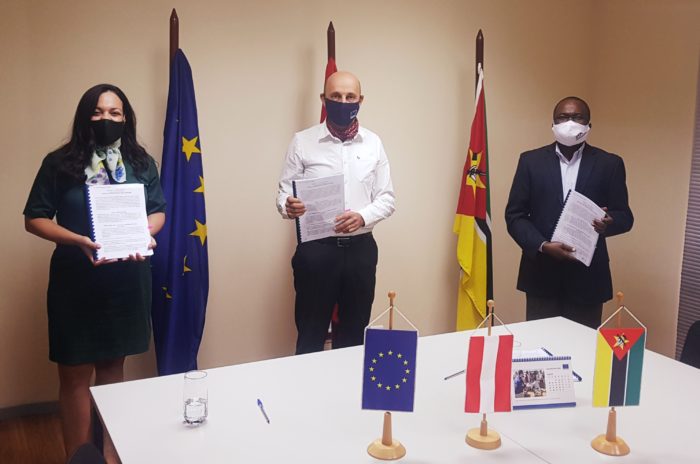
The CSAW Sofala project comes at a time when much of the Sofala province, particularly Buzi district, is still reeling from the effects of Cyclone Idai, which bore down with full force over the central coast of Mozambique in early 2019. Idai flooded over 715,000 ha of farmland and left over 40,000 households without access to safe water. Families—who have lost nearly everything—are still seeking resources to replace lost assets, rebuild, and recuperate livelihoods. Prior to Cyclone Idai, the effects of climate change were already felt in Sofala Province, threatening the livelihoods and food security of millions of Mozambicans.
Aid agencies currently are concerned with meeting peoples’ immediate needs, but emergency services are expected to end in 2020. Communities need support to revive livelihoods and replace lost assets.
NCBA CLUSA draws on 25 years of experience in Mozambique promoting sustainable agriculture practices, rural enterprises and farmer organizations. CSAW Sofala´s intervention logic rests on the belief that if challenges to production, markets and water resources are simultaneously addressed through a nexus approach, so that farmers can build resilience through sustainable production, inclusive and accessible markets, and improved access to multi-use water resources, then farming households in Sofala province can rebuild livelihoods and achieve food security, while becoming better able to withstand and recover from future shocks and stresses.
Main Objectives:
1) Enhance food security and income generation from agriculture production in the Buzi, Caia and Machanga districts. By adopting climate- smart agriculture, target farmers will increase their yields in a way that promotes the long-term sustainable management of natural resources and build resilience against future shocks. Increased yields will result in increased food security. As the project progresses, market-led production and increased market access activities will be introduced and farmers will be supported in aggregating, storing, and adding value to products so they can secure higher prices.
2) Increased inclusive and gender-equitable access to sustainable water infrastructure for human consumption and productive use in the Buzi, Caia and Machanga districts. By improving community-based WASH infrastructure, the availability of clean water for domestic use will be increased. Selected infrastructure will be upgraded to multi-use systems to provide more water for productive use. Training and institutional support to water management committees will improve communities’ capacity to manage water infrastructure.

